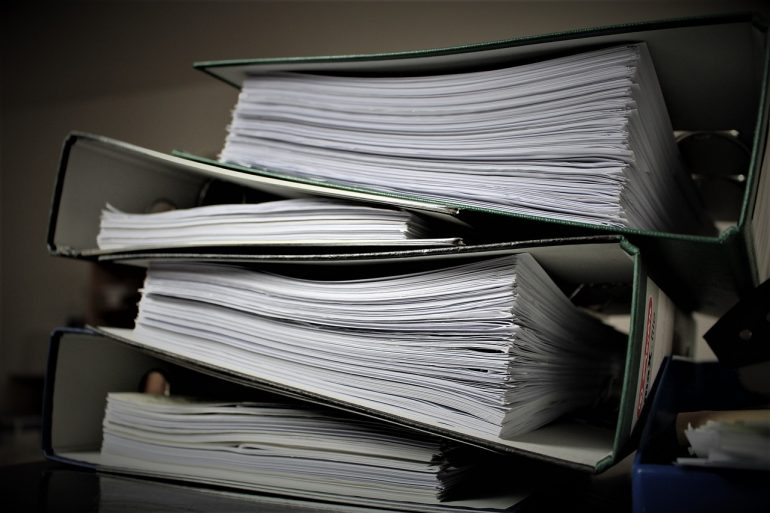First Drafts: Nonfiction (A Conversation with Lia Purpura, Jack Pendarvis, and Sven Birkerts)

1. How do your essay ideas typically come to you?
Lia Purpura: Let me reroute the notion of “typical” here. Single words, images, scents, incongruities, awe, toothache—all of these offer possibilities, though the moment of launch is always, at heart, mysterious. Knowing what starts you up shouldn’t in any way suggest that you then go about tracking that thing/moment/word/procedure, hoping it’ll keep bestowing riches. You can set up conditions (quiet, or music, a pledge not to answer the phone or check email) but being open to a range of entry-points or triggers is probably most freeing.
Jack Pendarvis: I’m lucky because the Oxford American (for which I write one of my columns) almost always does theme issues, and that at least points me in a direction. My other column, the one in The Believer, is supposed to be “folksy wisdom,” and it’s harder to think up ideas for that one. I guess you would call it a humor column, but not exactly nonfiction. I invented this kind of psychopathic persona for those columns. They’re more like monologues for a deranged character. Every month I’m afraid I’ve run out of folksy subjects, but I always think of something at the last minute, knock wood. Once I was at a party, and Sven Birkerts was there, too, and he said nonchalantly that I should write a column about hunkering. I held onto that for a while and one month when I was really dry, it was Sven Birkerts’s hunkering idea to the rescue. I’ve never, ever missed a deadline for any magazine, and maybe my desire to keep that streak going motivates me.
Sven Birkerts: How do ideas for essays typically arrive? This has changed a good bit over the years. I used to come up with topics that seemed necessary or important and then I’d set about thinking toward them, making notes, doing much more preliminary writing than I do now. I was very conscious then of creating the ‘right’ structure and I would sometimes draft pieces in my head as a way to get to sleep at night, thinking that this should follow that, and this paragraph should have some reflective asides. But in those days I was writing more about writers and books and the sequencing of a piece would follow a certain logic. But then I ran out of that gas, that willingness to be dutiful; I began to bore myself. And I hate being bored, or boring. In the last ten years or so I’ve begun to write much more autobiographically, and more personally, letting a good bit more serendipity work its way in. Where I used to need to know where I was headed, now—perversely—I almost need not to know. I’m only interested in writing if it surprises me, and only as it surprises me, sentence by sentence. The sentence tells me everything I need to know—at least en route to the paragraph: it has a taste, texture, timbre, tempo and telos. It knows where I’m going better than my thinking I, and it rightly resists my impositions. If I try to be too clever or too insistent, or too anything, it will lie down and refuse to go forward. By the same token, if the energy is right, if I have waited until the expression was ripe (how to know that?), it can feel like I’m holding on to some moving thing with both hands, just barely keeping up. The sensation is exhilarating. But then, later, I always wonder: can I take credit? Did I do this or was I merely cheerleading? I guess I’m being slightly disingenuous. If I can’t take credit for my writing at those moments, what do I imagine I can take credit for?
There is a readiness, and it signals itself by a kind of itchy eagerness. Things that want to be said put themselves into some order, they create pretexts. Why things should want or need to be said, I don’t know, but if they didn’t I would be out of work. It is in such large part about the saying–the verification of some deep principle that I feel when out of seeming nowhere, arriving as if magnetized for the purpose, comes a string of words, in rhythmic flow, their rhythm itself the undertone of sense…The day is won back, the preceding stuporousness is redeemed—however short-lived the victory. This would be why I write: to feel this sense of some little bit of life won back.
2. Where/how do you draft?
LP: I sit at my table, overlooking our scruffy, very green backyard, with a yellow legal pad and pen. And coffee or water depending on the hour of morning. I write by hand (I’ve always loved that phrase) and only go to the computer (which I use like a typewriter) when I have to. I print very quickly and then work on versions with my favorite green mechanical pencil. This all sounds very neat, and maybe obsessive, but drafting also happens on pads by the bedside, pads kept near the shower, in the car, on scraps collected in pockets, on the backs of envelopes. My dog is so accustomed to my stop-and-jot method that as soon as the pad comes out of my pocket when we’re on a walk, she sits down to wait it out.
JP: I sit in my little office at home in front of my computer. Some grad students of mine who fell in love and moved to Mexico together left me their goldfish. That’s a new addition to the office and I’m not sure whether it’s helping or hurting. It makes more noise than I thought a fish would make. And I sit and look at it and wonder what it’s thinking. Is it lonely? How long do goldfish live? Those kids already had it a couple of years before they gave it to me.
SB: Where and how do I draft? This, too, has changed. I used to be such a steady slugger, mapping out a morning’s work the night before and then doing my best to get on with it, orderly in my habits just as Flaubert counseled. Now things come much less reliably. I torment myself with the fear that I have used up my best material. I will work myself into a good funk—it’s so predictable—and then, just when I’m about to call it quits, I’ll maybe get a little flicker of something. An image, or a line that arrives as I imagine a line might arrive to a poet—and it will be something I could not have thought up, it will hold a chemical trace of that essential surprise. I will get very wary and watchful, not daring for a second to presume. I’ll wait. Sometimes it’s a fizzle. But when it’s not, when something follows, and then something else—well, then I’ll, metaphorically speaking, clear my schedule. Hold my calls, I’ll say, though there’s no one in the room, and no one is calling anyway. If something is ready to come out, I will stay with it as long as I can, putting down one sentence after another so long as the doing feels fresh, and when I start to feel my best energy fading, I do as Hemingway advised in A Moveable Feast—I make sure I know what will come next and then I stop. It works. If there is life in the idea, the premise, the prose, then I start the next day inclined way forward, almost falling over. I write so long as I can. This repeats until there is a draft. So compelling is this process that it doesn’t matter where I am or what talismans I have around me, but I am happiest up in my aerie, at my attic desk which looks directly into the leaves of a poplar, which has grown from a nothing into a serious tree in the years I’ve been at this.
3. What about assignments? Is your drafting process different, if you’re writing on commission, so to speak? How does the need to do research affect the way you draft?
LP: I don’t accrue too many pressure-filled, deadline-driven essays or reviews. Often “assignments” (say for an anthology or a talk) find a way of tapping some floating idea and provide the perfect occasion for pinning-down, or for wedging my thinking into the frame given. Otherwise, when it’s on my own terms and I can browse, muddle, wander at will, research is a joy. Usually, I’ll write my way into a spot and find that I just can’t proceed any further without serious research on the subject at hand. That sequence—having an inkling, a little knowledge, then writing into the need for more—is one very generative way I move.
JP: Ha ha! “Research.”
SB: Assigned essays can be a God-send. And nothing illuminates the mind’s mysterious workings as persuasively as seeing how an assignment, or even a prompt, charges particles and then gathers them to itself. Quite amazing. I can be in what feels like a creative void, a Gobi, but if the directive were given: write an essay on old batteries—I would. I would find the five or ten pages, and doing so would fill me with joy. Why not just do it on my own? For some reason it’s as hard as tickling yourself. Reviews are something else again. With reviews the template is inescapable. There are only so many ways to start or conclude a review, and the constraint of doing one’s civic duty is very great.
4. Let’s talk for a moment about revision. How do you know when a piece is finished enough to begin revising? How many revisions do you typically take an essay through?
LP: I can’t really identify precise moments of draft completion. I just work all morning until my time’s up or I can’t think well anymore and then put the thing away and pick it up the next day. They’re all versions, until they’re not, and then I may have a friend read it, or more likely, I’ll just let it sit for weeks on end, simmering. A tremendous lot gets straightened out and clarifies if you let it sit. In the end, how many revisions is up to the individual essay. It could be 5 or 50. No kidding. “Revision” should be understood in a really elastic way: everything’s flexing nicely except some section in the middle that’s kicking and screaming. Or you remove one paragraph and the whole rickety house falls down, i.e. you’ve just discovered that it is, in fact, rickety. It’s almost never a start-at-the-top and read-through kind of endeavor.
JP: That’s so hard to tell now with the computer (how many drafts, I mean). As I try to write, my attention drifts back to the beginning of the piece, and I’m always making little changes. I send off the Oxford American column prematurely every time. As soon as I hit the send button, I regret it. It magically makes me think of flaws I didn’t see before. So I usually end up sending two or more emails after that, with instructions to destroy the previous ones and use the newly attached draft instead. At The Believer, it’s funny. It’s such a short column, about 700 words, but Andrew Leland (my editor there) really picks through it. There are numerous questions and suggestions when my draft comes back. It’s almost crazy, the amount of hard work he puts into this smidgen of fluff. But he really makes it better. He’s very good at his job. So once, I felt my ideas weren’t really hanging together, that I had come up with just a crazy collage, a mess, but I sent it off anyway, thinking, “Andrew will fix it!” And that’s the only time he didn’t have any changes for me.
SB: If the draft is decent—and I work carefully—to rhythmic indicators—it will only need one or two revisions, a process that can be very slow because I am almost literally counting out the beats, and any addition, even a sentence, has to take the gestalt into account.
5. Do you have a favorite drafting experience—a special place you wrote in, a piece that arrived fully-formed? Do you have a least-favorite experience?
LP: A few years ago while I was teaching—it was early fall—I was going on about something or other and I looked out the window and there was this one incredibly yellow leaf among all the green ones on this tree. And suddenly this other . . . what, track, realm, mind . . . took over. I could hear myself excusing myself to my class, and these lines forming in the back of my head, even as I spoke to my class. I grabbed some paper and wrote out what was coming to me. The poem, the sequence of thought and burst of idea, required very little revision at all. Just a little tinkering. It appeared in The New Yorker very soon after it “arrived.” [“First Leaf,” Oct. 09] I remember talking to my students about the incident after the thing was published, and saying “remember that moment? That was a gift. It almost never happens like that. Don’t count on it, but I’m glad you got to see the lightening in action.”
JP: Once, when Ed Park was my editor at The Believer, I got an email from him saying, “It’s perfect! Let’s run it as is.” And I thought, “What’s perfect?” Slowly it came back to me that after a fancy dinner the night before with lots and lots of wine pairings, I had come home and written a column and sent it off. Oh, dear. I guess that’s better than waking up with blood on your shirt.
SB: A favorite draft/essay experience? Each is different, of course. A while back I was filling pages, writing about my feeling of living in a changed cultural milieu, trying yet again to assess the impact of the digital, of instantaneity…Everything seemed to connect, and everything felt relevant—I was stymied by my sense of infinite regress. Pages, pages, pages. And then a phrase came into my head. A silly phrase: “What if the elephant in the room is the room itself?” But right away it organized things. I started from a new place, and found myself quickly and easily putting those same thoughts into a sequence. When I finished I felt that I had not only put some order onto the page, but that I had realigned my thinking life at the same time. The satisfaction was, naturally, short-lived. But it felt real. Least favorite? Oh, how I toiled last summer on a conceit—creating a Crusoe figure who would recognize that he was shipwrecked in a world he no longer understood or cared for. I went for such a long time thinking I had something interesting happening on the page. I didn’t dare to look back, though, for fear of disappointing myself. I must have known. Finally, many pages in, I decided to print out and read. And—well, every writer has this story. It’s good to remember how inspiration and self-delusion often have what look to be the same feather-markings.
Bios:
Lia Purpura’s most recent collection of essays is Rough Likeness. Her awards include a 2012 Guggenheim Foundation Fellowship, NEA and Fulbright Fellowships, and three Pushcart prizes. On Looking (essays) was finalist for the National Book Critics Circle Award. Her poems and essays appear in The New Yorker, The New Republic, Orion, The Paris Review, Field and elsewhere. She lives in Baltimore, MD.
In addition to his columns in The Oxford American and The Believer, Jack Pendarvis has written three books of fiction. This is him desecrating Faulkner’s typewriter in Oxford, Mississippi, where he lives. Photo by Neko Case.
Sven Birkerts is the author of nine books, most recently The Other Walk: Essays, published by Graywolf Press. He edits the literary journal AGNI at Boston University and is Director of the Bennington Writing Seminars. He has published essays most recently in the Los Angeles Review of Books and Triquarterly on-line.
Photo Credits: Lia Purpura’s photo from here. Jack Pendarvis’ photo by Neko Case. Sven Birkerts’ photo by Richard Howard (not the poet…).



